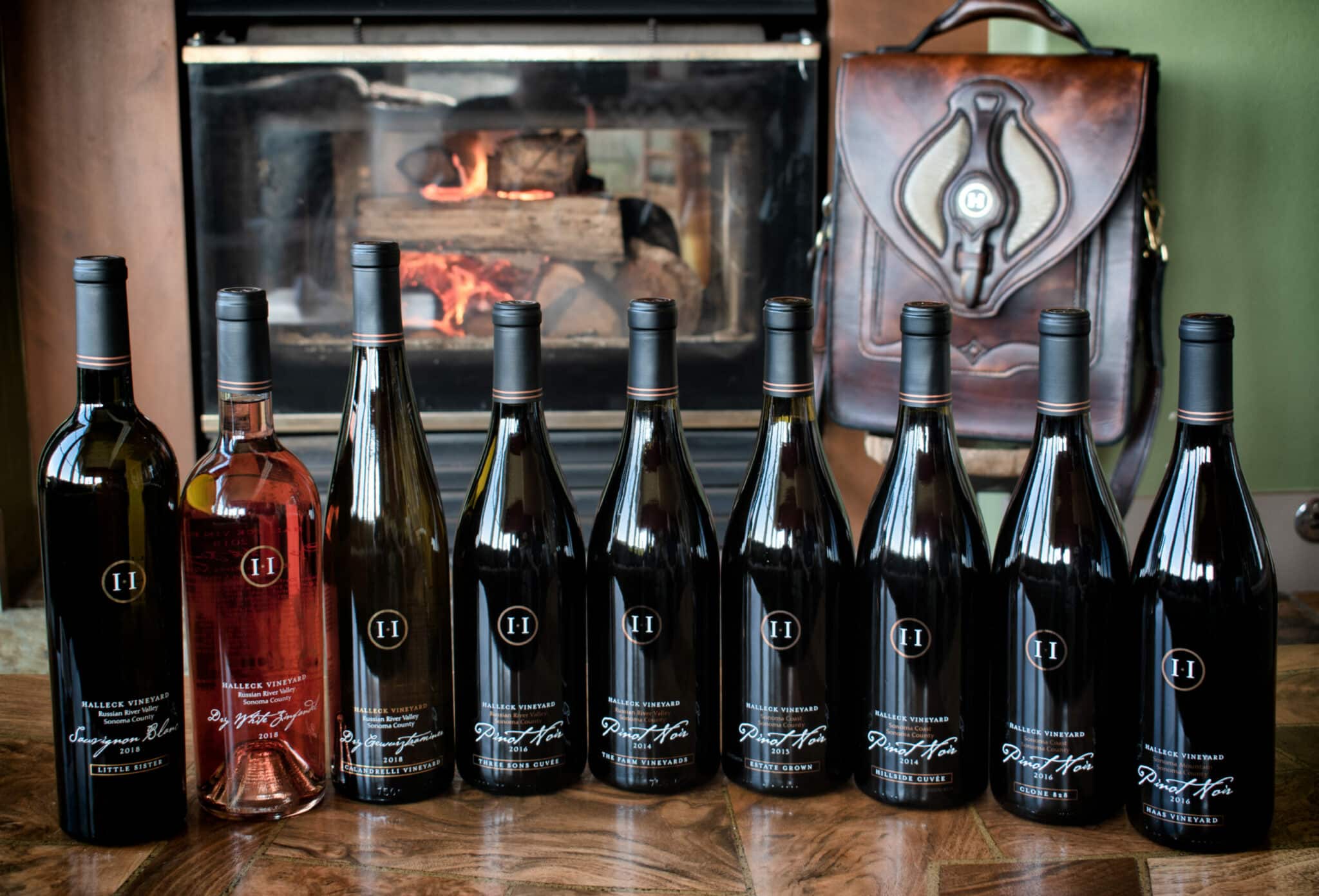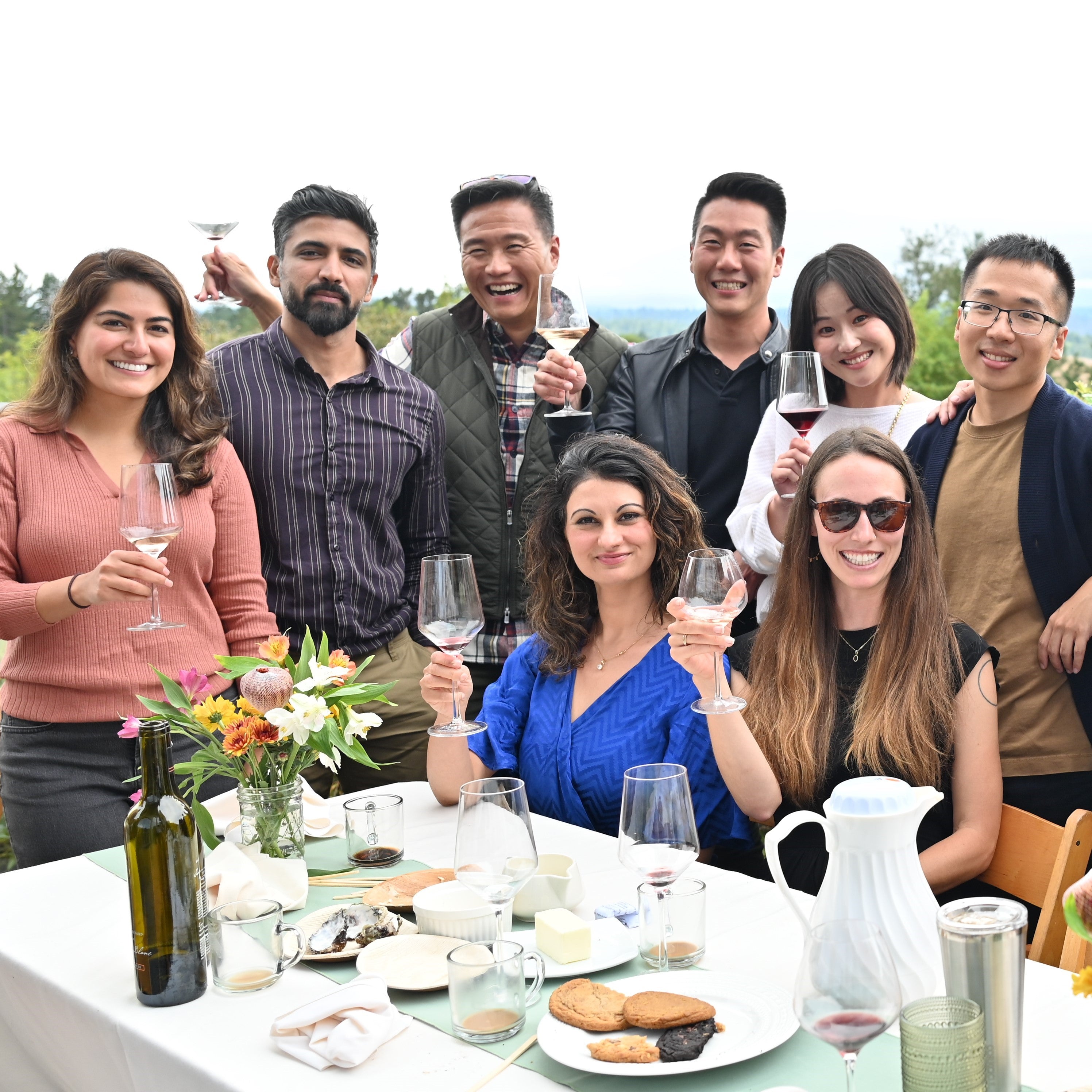Wineries Focusing On Single Vineyard Wines - Wine Tasting And Vineyards In Sonoma
Wine tasting is commonly regarded as an art type, one that goes past merely enjoying a beverage. It embraces a complex interaction of flavors, aromas, and textures that requires devoted practice to actually grasp. Many who venture into the world of wine tasting shortly realize that it entails much more than just sipping wine. Enhancing sensory skills by way of devoted winery wine tasting can elevate the experience, reworking an informal drinking occasion into a complicated exploration of the senses.
At a basic stage, wine tasting engages the senses of sight, odor, taste, contact, and even sound. Every part performs an important function in appreciating the nuances of a wine. When one first pours a glass of wine, the wealthy hues can provide preliminary insights into its age and varietal. Observing the color and clarity helps form expectations about the wine's flavor profile. Many don’t fully appreciate how this visual assessment can set the stage for what is to comply with.
The next step is to engage the sense of smell. Swirling the glass aerates the wine, permitting its unstable compounds to escape and fill the air with its bouquet. The nose entails some fascinating layers—different aromas can signal numerous elements of the winemaking course of, including the sort of grapes used, fermentation methods, and getting older situations. Developing a eager sense of smell is usually a game-changer in wine tasting.
Wineries With Unique Gamay Wines - Top Sonoma Wineries To Visit
To enhance this sensory skill, wine enthusiasts are often inspired to take part in devoted tastings at wineries. These tastings enable individuals to focus solely on the sensory experience (Wineries Offering Private Events). Tasting sessions led by educated sommeliers or winemakers can offer insights into identifying distinct aromas. Studying to differentiate between floral, fruity, earthy, and spicy notes can empower a taster to articulate their experience with higher precision.
As one practices their sensory abilities, they might uncover that their style preferences evolve. This transformation typically occurs after a number of tastings. A wine that initially seemed overwhelming might reveal hidden layers of complexity with a bit of experience. Understanding how to isolate particular person flavors similar to acidity, sweetness, bitterness, and umami contributes considerably to the overall wine experience.
Another important component in enhancing sensory skills is the context in which wine is tasted. Environmental components like temperature, lighting, and even the corporate current can affect perceptions. At a winery, an optimal setting can scale back distractions and allow a more profound exploration of the wine (Wineries That Offer Barrel Tastings). Training aware tasting techniques encourages a more immersive experience, permitting tasters to hone in on their senses.
It isn't solely about individual notion, though. Engaging with others throughout a tasting can also improve sensory skills. Sharing notes and discussing impressions fosters a deeper understanding of the wine. This collaborative method encourages individuals to articulate their sensory experiences, thereby broadening their linguistic repertoire associated to wine tasting.
Beautiful Picnic Areas At Sonoma Wineries - Wineries Near Sebastopol For Tasting
Additionally, pairing wine with food can considerably enhance the tasting experience. Totally Different combos can convey out unique flavors in each the wine and the dish. As one tastes a wine alongside particular meals, they can start to acknowledge how sure components in the wine complement or contrast with what they're consuming. This skill of pairing is one other layer that enriches sensory development.
Training one’s palate can contain a variety of workout routines. Some enthusiasts engage in systematic tasting experiences, sampling a variety of wines that showcase totally different varietals, regions, or vintages. Exploring this diversity can sharpen the power to discern nuances throughout totally different wine profiles. Over time, this practice builds a mental library of flavors that may be accessed throughout future tastings.
Notably, written notes serve a dual purpose: organizing one’s thoughts and reinforcing reminiscence. By writing down observations about every wine, tasters can monitor their progress over time. Detailing the traits of wines assists in solidifying information, finally deepening one’s appreciation of what they consume.
Moreover, attending workshops or classes centered on sensory evaluation may also be helpful. Many wineries offer these instructional applications to assist people refine their skills. Often, trained instructors guide individuals through structured tastings, specializing in specific components of the wine. This degree of training reinforces the sensory skills asynchronously and challenges tasters to consider their experiences from different angles.
Wineries Promoting Sustainable Farming - Tasting Experiences In Sebastopol Vineyards

Over time, the dedication to bettering sensory skills through devoted winery wine tasting can yield important rewards. The enjoyment derived from wine turns into layered and multifaceted. No longer limited to a easy desire for "pink" or "white," tasters begin to understand the tales behind every pour. They domesticate a palette able to navigating the advanced panorama of flavors with confidence.
In conclusion, the journey of enhancing sensory skills by way of devoted winery wine tasting is as rewarding as it's gratifying. It requires focus, dedication, and a willingness to be taught, however the outcomes far exceed the initial effort. By partaking multiple senses and collaborating article source in thoughtful discussions, individuals not only become more proficient at figuring out flavors but additionally develop a deeper appreciation for the craftsmanship behind every bottle. The process transforms wine from a mere beverage into a rich tapestry of sensory exploration that beckons enthusiasts to delve deeper. As skills improve, so too does the enjoyment, enriching life experiences one sip at a time.
Vintage Wine Tasting Experiences In Sebastopol - Exploring The Vineyards In Sonoma County
- Engaging the palate via various wine varieties enhances the flexibility to tell apart flavors and aromas, refining general sensory notion.
- Taking Part in guided tastings promotes centered attention on subtle characteristics of every wine, nurturing important tasting skills.
- Studying to establish specific grape varieties fosters a deeper understanding of terroir, which aids in recognizing regional flavor profiles.
- Incorporating food pairings during tastings can heighten sensory awareness, as totally different tastes can affect one another and alter perceptions.
- Working Towards the art of swirling and nosing wines permits people to attach olfactory cues with style, improving the ability to articulate sensory experiences.
- Attending workshops that emphasize blind tastings trains participants to rely purely on their senses rather than preconceived notions, enhancing objectivity.
- Elevating sensory skills can lead to better wine selection abilities, empowering individuals to make informed choices based on personal preferences.
- Engaging with knowledgeable sommeliers offers insights into wine-making processes, which deepens sensory appreciation and enhances vocabulary for describing wines.
- Regular participation in tastings encourages memory growth of flavors and aromas, aiding within the formation of a personalised sensory profile over time.
- Sharing tasting experiences with friends fosters dialogue, selling communal learning that can enhance individual sensory skills through collaboration.undefinedWhat is the purpose of enhancing sensory skills via wine tasting?

Improving sensory skills via wine tasting allows people to reinforce their ability to establish and recognize the various aromas, flavors, and textures of wine. This heightened sensory consciousness can lead to a deeper understanding of wine and an general enriched tasting experience.
Wineries Known For Sustainable Practices In Sonoma - Sonoma Wine Retreats
How can I develop my sensory skills at a winery?
You can develop your sensory skills at a winery by taking part in guided tasting classes that target specific varietals. Engage with educated workers who can present insights and encourage you to take notes on your impressions, enhancing each your observational and descriptive talents.
What ought to I anticipate during a devoted wine tasting experience?
Wineries Offering Charcuterie And Wine Pairings - Sebastopol Wine Experiences
During a devoted wine tasting experience, count on to sample a number of wines whereas receiving focused schooling about every one. You Will learn about the winemaking course of, tasting techniques, and tips on how to discern different sensory characteristics, all in a relaxed surroundings.
Is prior information of wine essential to profit from a sensory skills workshop?
- Best Chardonnays From Sonoma Winemakers
No prior data of wine is necessary; the workshops are designed for all levels of experience. Novices will find priceless data to build from, while seasoned tasters can refine their skills and expand their palate even additional.
How do sensory skills impact my total wine appreciation?
Wineries In Green Valley - Top Sonoma Wine Tasting Destinations
Improving sensory skills considerably enhances your total wine appreciation by permitting you to determine subtleties and complexities in wines. This deeper understanding enriches your tasting experience and helps you make informed alternatives based mostly on personal preferences.
Are there particular techniques I should use whereas tasting wine to enhance my sensory skills?
Wineries Offering Off The Beaten Path Experiences - Best Winery Located In Sonoma
Yes, using techniques such because the "SWOT" method (Sight, Swirl, Scent, Sip, Savor) can be beneficial. Pay consideration to the wine's look, aromatics, and mouthfeel, and take your time with each sip to totally discover the flavors and sensations.
What type of wines are sometimes included in sensory skills tastings?
Sometimes, sensory skills tastings embody quite a lot of wines that showcase totally different regions, varietals, and styles. This diversity helps individuals establish distinct characteristics and enhances their ability to distinguish between wines.
Can sensory skills workshops be personalized to my tasting interests?
Historical Wineries To Visit In Sonoma - Vineyards In The Sonoma Region
Many wineries offer personalized options for sensory skills workshops, permitting you to give attention to specific types of wines or themes that interest you, such as organic wines or distinctive regional choices. It's finest to inquire directly with the winery for tailor-made experiences.
Is there a method to practice sensory skills after leaving the winery?
Yes, you can practice your sensory skills at home by tasting different wines and preserving a tasting journal. Experimenting with numerous food pairings and aromatics can find this additional improve your understanding of how flavors interact, reinforcing the skills gained at the winery.